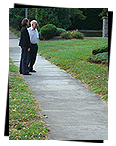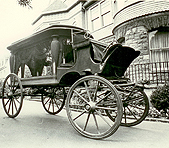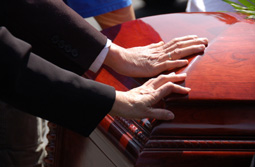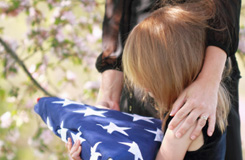Obituaries | Directions | Contact Us
Call 610-253-4678

Obituaries | Directions | Contact Us
Call 610-253-4678


 This is an earnest question, and it deserves a good answer. Back in the mid-1800’s, when Ashton Funeral Home was founded, funerals were taken for granted. They usually took place in the home, and the undertaker merely assisted the family with final details. Later, funeral homes began offering their own — parlors — in which to hold funerals. But whether at home or in a funeral parlor, there was always a funeral, and people attended them throughout their whole lives.
This is an earnest question, and it deserves a good answer. Back in the mid-1800’s, when Ashton Funeral Home was founded, funerals were taken for granted. They usually took place in the home, and the undertaker merely assisted the family with final details. Later, funeral homes began offering their own — parlors — in which to hold funerals. But whether at home or in a funeral parlor, there was always a funeral, and people attended them throughout their whole lives.
These days, we know of people in their mid-twenties or older that have never yet attended a funeral. Death is not considered as — a part of life — quite as it used to be, and most of us don’t come into close contact with it as routinely as people in the 1800’s did. Since times have, indeed, changed, it is fair to wonder if funerals are as necessary as they used to be.
We have found that funerals are an important and grace-filled human ritual that fills a significant role for those who are grieving. For above all, a funeral is a celebration of a life. All through our lives, we acknowledge important milestones. Birthdays, graduations, weddings — our deceased loved one had many such celebrations in his or her lifetime. As the final celebration, the funeral gives us an opportunity to recognize that life, and begin to come to terms with the loss of it.
 All through history we have understood that acknowledging death is the first step in adjusting to our loss. If we are deprived of the ritual of saying farewell, such as in terrible times of war, the emotional cost is extremely high. So it is that the funeral is critical in coming to terms with the loss of our loved ones. It is a hard truth, but that is what the funeral gives us — the plain acknowledgment that death has occurred, and that it is final. And in a subtle way, in going through the actions of planning the funeral and making the final arrangements, we are helping ourselves take the first step to a new, different way of living.
All through history we have understood that acknowledging death is the first step in adjusting to our loss. If we are deprived of the ritual of saying farewell, such as in terrible times of war, the emotional cost is extremely high. So it is that the funeral is critical in coming to terms with the loss of our loved ones. It is a hard truth, but that is what the funeral gives us — the plain acknowledgment that death has occurred, and that it is final. And in a subtle way, in going through the actions of planning the funeral and making the final arrangements, we are helping ourselves take the first step to a new, different way of living.
The tradition of a calling period also helps us travel through the grief process. Our friends and family come together, express their sympathy, and talk about the deceased with us. We share our sorrow and give each other support. It is an appropriate and safe place for us to mourn, express our grief openly, and say our final farewell.
One of the most loving actions we can take during the calling period is to express our sympathy to the next of kin. They need to know that their loved one has touched other people, that the loss is not just their own. It does you good to be there, but it is even better for the surviving family to know you care.
Whether or not to have a viewing of the deceased is an individual choice. We find that it is usually helpful to the bereaved, as it aids them with closure and beginning the grieving process. Our particular funeral home is divided into interconnected parlors, so if the family wishes to keep the casket open during the funeral service, they can be near the deceased in relative privacy. We find that, in that case, many families prefer to view the body, then say their final goodbye just before they make the trip to the cemetery.
 Over time, we have noticed that fewer and fewer people take their children to viewings and funerals. Experience tells us that bringing children is not something to be feared. After the age of four or so, we suggest people let their children see their parents grieving and crying, and let them be a part of the process. Explain to them what is happening; the longer they are kept from seeing or visualizing death and grief, the harder it becomes for them to understand it.
Over time, we have noticed that fewer and fewer people take their children to viewings and funerals. Experience tells us that bringing children is not something to be feared. After the age of four or so, we suggest people let their children see their parents grieving and crying, and let them be a part of the process. Explain to them what is happening; the longer they are kept from seeing or visualizing death and grief, the harder it becomes for them to understand it.
People are sometimes uncertain what to do about a funeral if they have chosen cremation. For all the reasons stated, and more, a funeral remains important. We have found that, when they look back on it, people are glad they had calling hours and a funeral prior to cremation, and that they gave themselves time to adjust to the death in the company of their loved ones.
As with many important things in life, planning and attending a funeral is not easy. But it is worth gathering together all of the strength that we can muster and doing our best. For when the kindness of time has erased the deeper gashes of grief, we will look back on what we have done and be glad for the grace, respect, and dignity with which we did it.